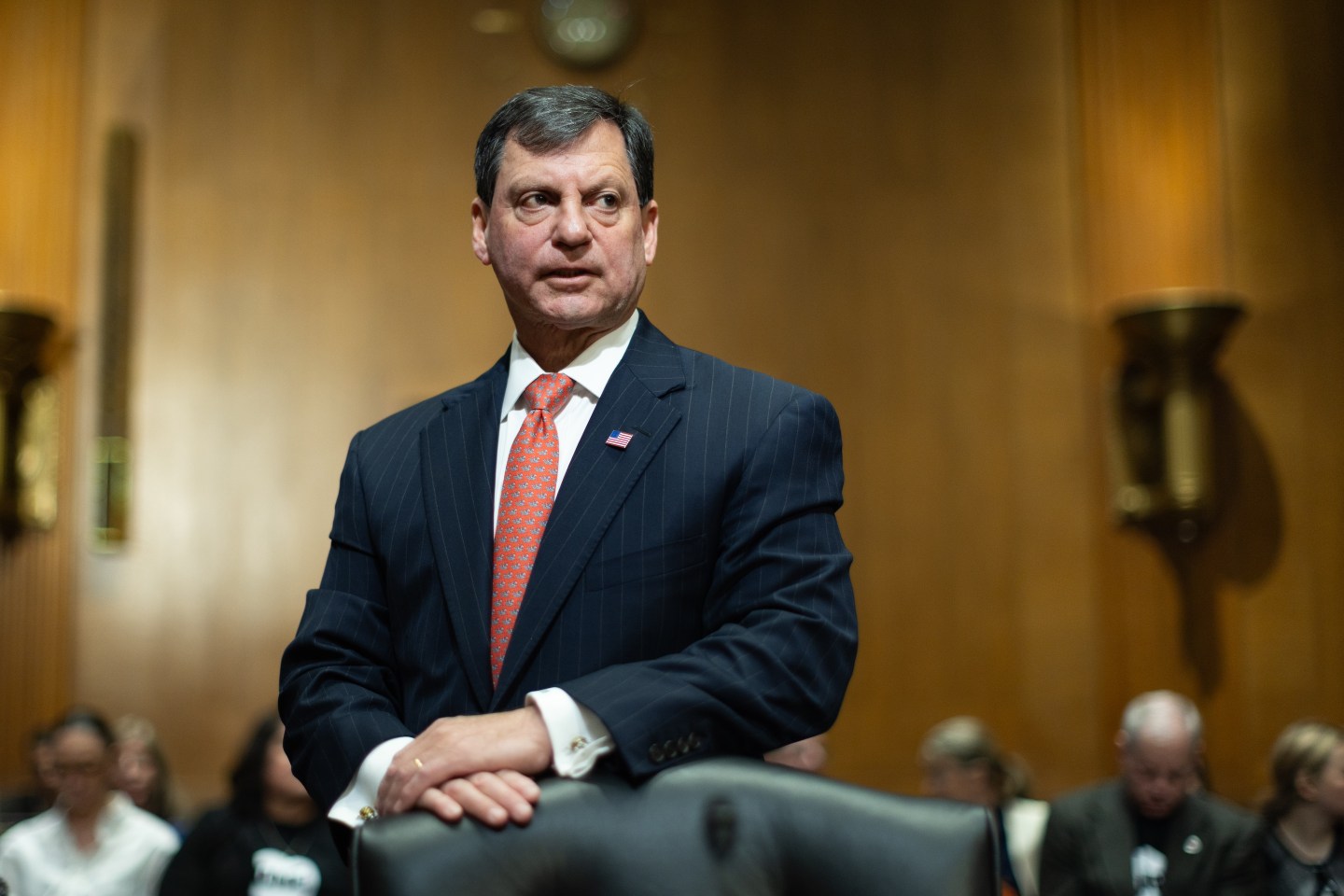Good morning. The next generation of artificial intelligence—agentic AI—is upon us and is already part of the enterprise workflow, according to Nvidia, which dominates the AI chip market. The tech giant has also set its sights on robots and AI agents as part of its next phase of growth.
Agentic AI refers to intelligent AI agents that use sophisticated reasoning and inference to autonomously assist in solving complex, multi-step problems. During the tech event CES 2025 on Tuesday, Nvidia CEO Jensen Huang and CFO Colette Kress hosted a financial analyst Q&A where agentic AI was one of the hot topics.
“It has to reason; break it down step by step,” Huang said of how the technology works. It retrieves and reads that information, understands it, puts it into context, and then eventually generates some answers, he explained. “Agentic AI can work on things for thousands of inferences,” Huang said.
Enterprise AI has been a focus of Nvidia for some time as it works with Fortune 100 companies on AI initiatives across industries and geographies, Kress said in a previous earnings call. But Nvidia has now launched new products like AI Blueprints for building agentic AI applications geared to help enterprises automate work.
“The mental model for AI and enterprise is really AI agents,” Huang said. He described AI as an agent or robot that sits on top of tools and uses the tools. “That layer has never existed before,” Huang said. “That’s why AI is a growth industry.”
Nvidia is also working with some software companies seeking to create AI agents that use their tools and then rent them to their customers, he explained.
“There’s a billion knowledge workers,” Huang said. “Everybody’s going to have AI assistants.” He added, “Starting next year, if a software engineer at your company is not assisted with an AI, you are losing already, fast.”
Meanwhile, during a Tuesday fireside chat session at CES, Kress remarked that, as Nvidia continues to help enterprises design their future, “agentic AI is going to be an important part of that for many of them.” For example, the technology can be used in call centers or to improve testing for different types of fraud or enhance risk management, she said.
Nvidia’s market cap is at $3.45 trillion. The robotics and autonomous technology market represent another $1 trillion of incremental market opportunity that Nvidia now can tap into over the coming years, Dan Ives of Wedbush Securities wrote in a Tuesday note to investors. Nvidia will “exceed a $4 trillion market cap and ultimately could be a $5 trillion market cap valuation as we head into the next 12 to 18 months,” according to Ives.
Sheryl Estrada
sheryl.estrada@fortune.com
*An upcoming event: Fortune’s CFO Collaborative (sponsored by Deloitte) is an invitation-only group of CFOs from leading companies, which meets virtually and in person for deep-dive discussions on what is top of mind for finance leaders. This month, we will gather in Atlanta on Jan. 29 to discuss, “Preparing for the Next Administration: The CFO’s Role in Planning.”
It’s an invitation-only event. However, if you’d like more information, please send an email to: CFOCollaborative@Fortune.com
Leaderboard
Paul Carbone, CFO, has been named interim CEO of Panera Brands Inc., effective Jan. 7. José Alberto Dueñas, Panera Brands’ current CEO, has decided to step down from his role and will serve as special advisor to the CEO through the end of March. Carbone, who joined Panera in 2023, is a former long-time CFO of Dunkin’ Brands. Panera is conducting a search for a permanent CEO.
James Whitlinger was named EVP and CFO of Freddie Mac (OTCQB: FMCC), effective Jan. 1. Whitlinger previously served as the company’s SVP and single-family CFO since 2014. He has served as interim CFO since June 2024, following the departure of Christian Lown, who served as CFO from June 2020 to June 2024.
Big Deal
The World Economic Forum’s Future of Jobs Report 2025 estimates that, by 2030, five macro trends are projected to generate a net growth of 78 million jobs globally. The macro trends are technological changes, the green transition, demographic shifts, geo-economic fragmentation, and economic uncertainty. Among these trends, technological change is expected to have the biggest impact on jobs by 2030—both creating and displacing them. The report is based on the perspectives of over 1000 companies that collectively employ more than 14 million workers globally.
Going deeper
In a new Wharton Business Daily podcast, Wharton’s Lynn Wu predicts that the runaway growth of artificial intelligence will hit some roadblocks in 2025, including cost and data limitations. “I think this is very individual, for people and also for firms, to figure out what the best use case is going to be for you, specifically,” Wu said. “That’s is going to be key to unlocking the benefit of AI.”
Overheard
“How the future plays out is far from written in stone. Outcomes will be determined by how businesses invest, how leaders set priorities, and how the private and public sectors work together.”
—Eric Kutcher, a senior partner in the Bay Area and McKinsey & Company’s chair and managing partner of North America, writes in a Fortune opinion piece, titled “The $48 trillion question: How can the U.S. compete in the industries of the future?”













